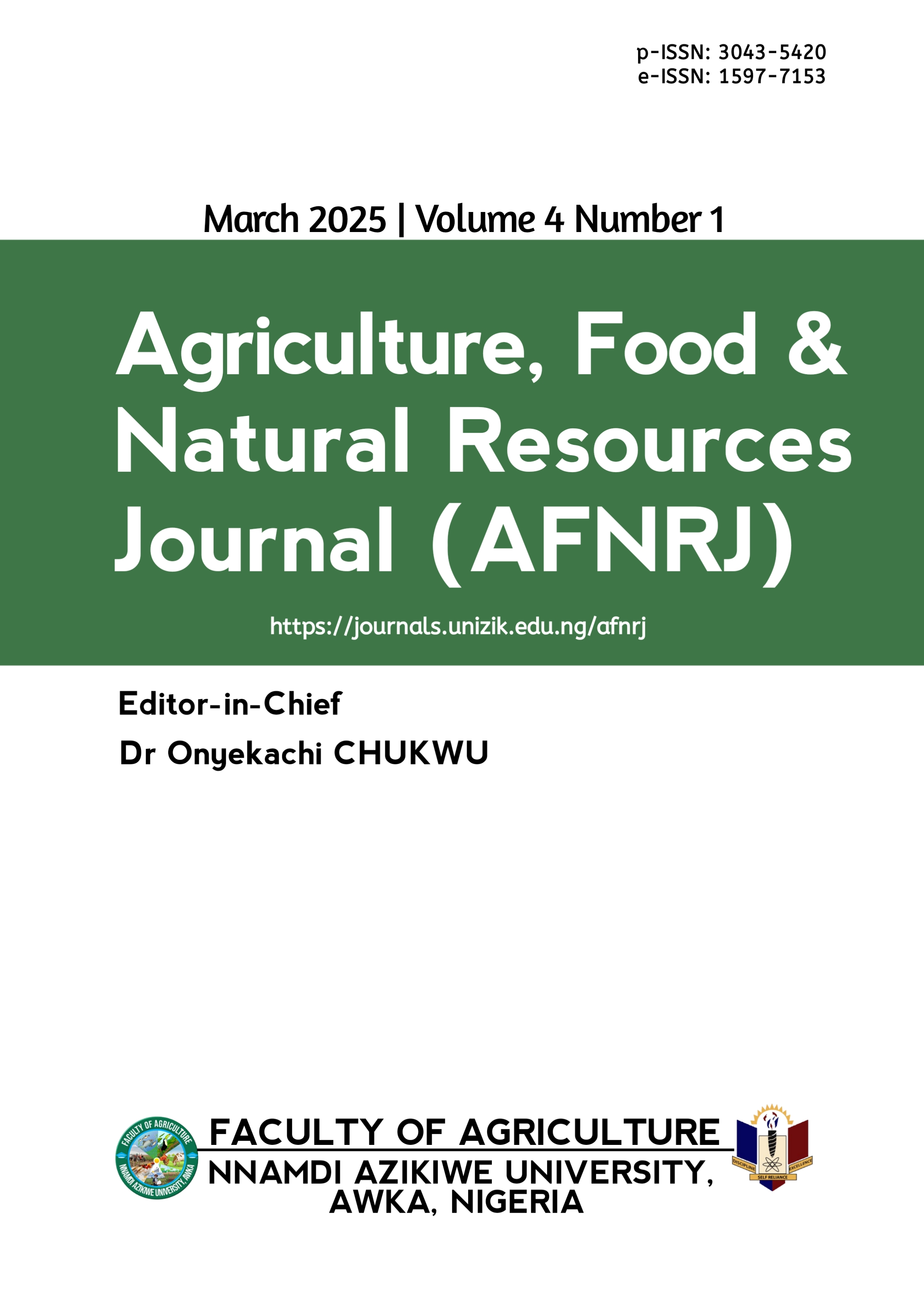Impact of conservation outreach programmes on the attitude of support zones dwellers in Gashaka-Gumti National Park, Nigeria
DOI:
https://doi.org/10.5281/zenodo.15115419Keywords:
Attitude, Awareness, Respondent, Wildlife, WillingnessAbstract
Outreach programmes on conservation played a significant role in promoting conservation objectives by affecting people’s attitudes and behaviour towards wildlife conservation and protection of their environment. This study aimed at evaluating the impact of conservation outreach programmes on the awareness and attitudes of support zones and enclave dwellers towards wildlife conservation in Gashaka Gumti National Park, Nigeria. The research procedure involved the stratification of the study area into six ranges. The purposive sampling technique was used in selecting settlements, while random sampling was used for respondents. Structured questionnaires were used for the collection of data. The data obtained were subjected to descriptive (frequency and percentages) and inferential statistics (t-test at 95% probability level). Results obtained indicated the occurrence of outreach programmes such as extension (20.19%), school visits (15.46%), special campaigns (26.17%), television broadcasts (10.15%), printed materials (36.55%), and radio jingles (38.96%). The rate of occurrence of outreach programmes indicated monthly (27.88%) and quarterly (28.21%) as the most frequent. Affirmations of the positive impacts of outreach programmes on awareness and attitudes were 77.83% - 93.48% for awareness and 67.31% - 92.03% for attitudes. The occurrence of wildlife conservation outreach programmes in the support zone communities of Gashaka Gumti National Park impacted positively on the residents’ awareness and attitudes, resulting in a positive outcome. It is therefore recommended that the content, strategies, and intensity of the outreach programmes be improved upon for greater success of the programmes.
Published
Issue
Section
License

This work is licensed under a Creative Commons Attribution 4.0 International License.
which permits unrestricted use, distribution, and reproduction in any medium, provided the original author and source are credited.
Authors retain the copyright of their published work in the AFNRJ.





